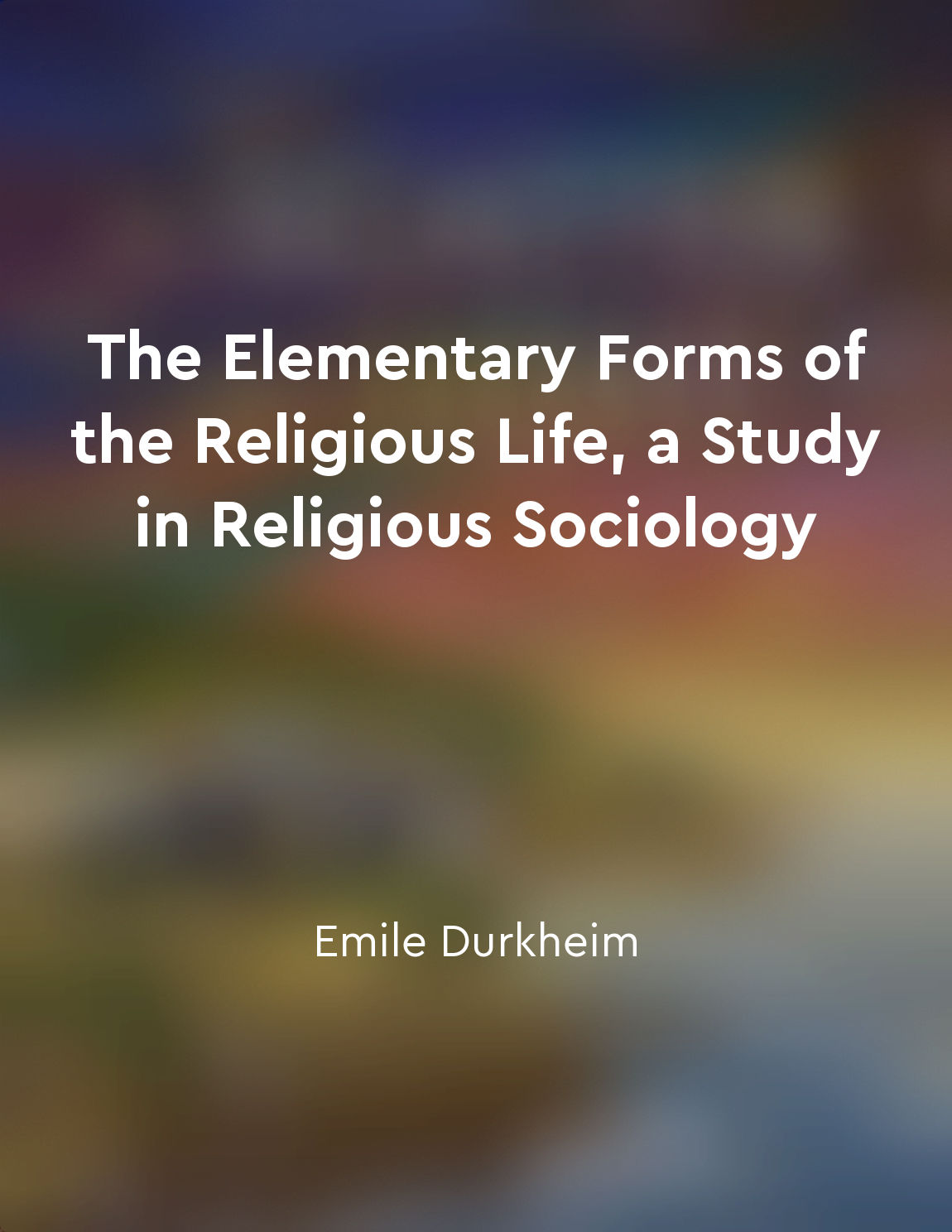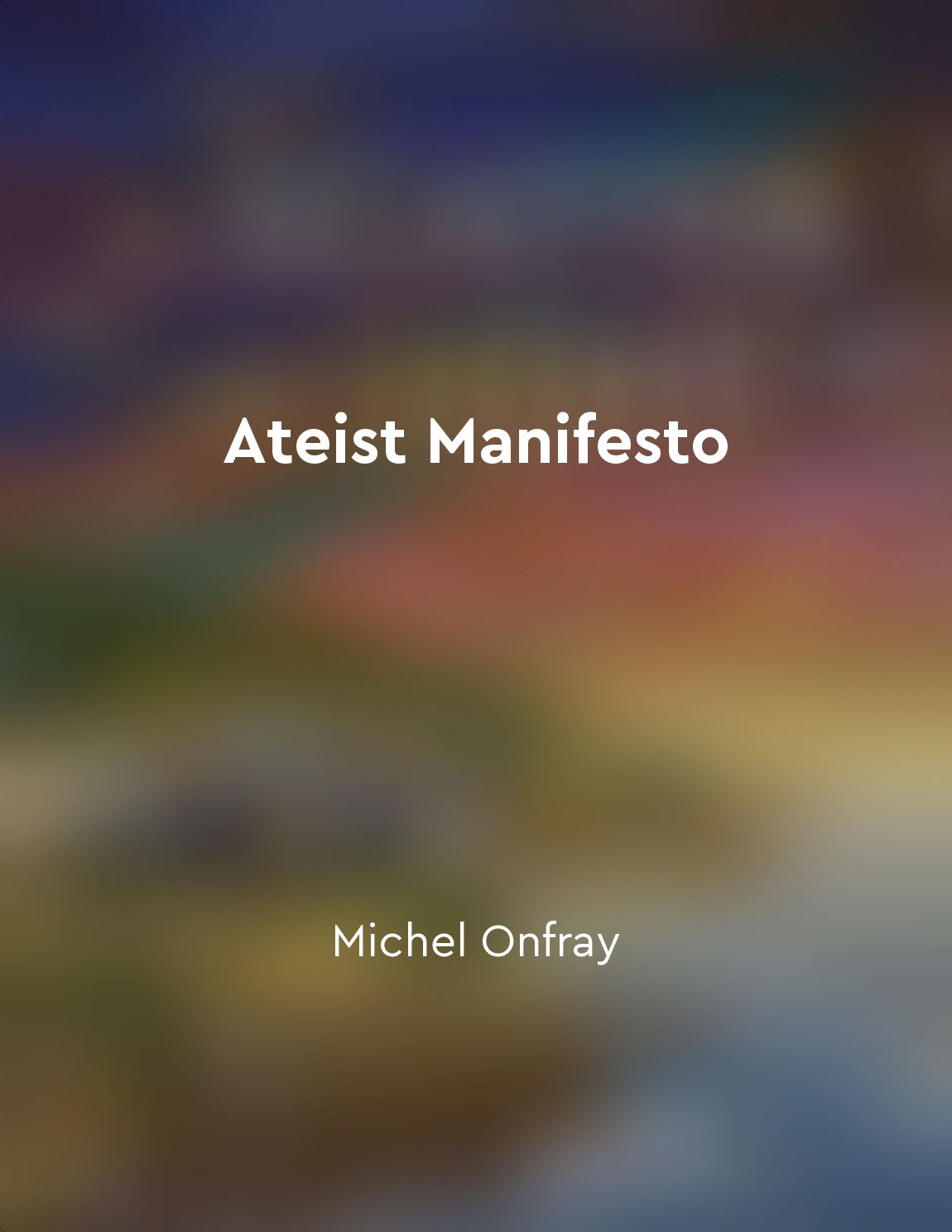Religious representations are sacred and set apart from the profane from "summary" of The Elementary Forms of the Religious Life, a Study in Religious Sociology by Emile Durkheim
The distinction between the sacred and the profane is a fundamental concept in religious sociology. According to Durkheim, religious representations are considered sacred because they are set apart from the ordinary, mundane world of everyday life. The sacred represents a realm of ultimate significance and power, separate from the profane world of ordinary activities and concerns. This separation serves to elevate religious representations above the profane, endowing them with a sense of awe and reverence. The sacred is imbued with a sense of mystery and transcendence, inspiring feelings of reverence and devotion in believers. In contrast, the profane is associated with the mundane, the everyday, and the ordinary. Durkheim a...Similar Posts

Agnosticism is not a middle ground between belief and disbelief
Agnosticism is often mistakenly viewed as a middle ground between belief and disbelief. However, this is not the case. Agnostic...

The sacred is emblematic of societal ideals
Durkheim posits that the sacred serves as a representation of society's collective ideals and values. This concept is integral ...

The burden of proof lies with believers, not atheists
Believers in gods must bear the burden of proof. If they believe in a deity, they must provide evidence. It is not the responsi...
